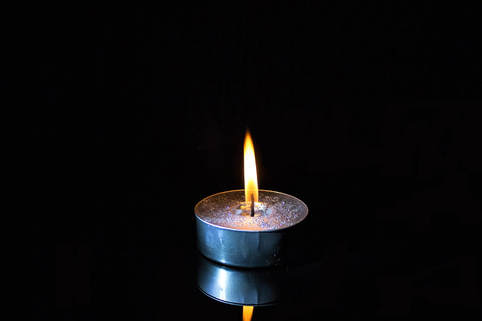|
Mainstream American culture wants to kill grief. My mother died last August. I am still grieving, but much more privately now. Even though it’s been barely six months it’s clear that, for the most part, I am supposed to appear bouncy and happy and project that I have “moved on” with my life. Ha. My relationship with my mother was a jumble of gratitude, love and unending struggles toward forgiveness, alternating with colossal annoyance and resentment and more unending struggles toward forgiveness (that went both ways). But the less-than-perfect dynamic of our relationship didn’t make losing her any easier. I still cry every time I reach for the phone to call her before I remember she’s gone. My mother’s absence from this world remains at once constant/overarching and sudden/stunning. My mother’s absence keeps blasting up at me randomly, like I’m forgetting I live on a field of geysers. That is grief. We think of grief* that lasts beyond a very short window (funeral, visitation, a short leave from work if we’re lucky, or maybe six months of “reasonable” sadness if we adhere to some guidelines) as a weakness; a spiritual failing; a mental illness; a temporary, linear process of inconvenient but required steps toward a past state of non-grieving that should be gotten through quickly. We’d better be back at it and ready to produce within a week or two, by God, or something is wrong
0 Comments
Your comment will be posted after it is approved.
Leave a Reply. |
The FDF LifestyleThis page includes blogs, healthy articles, inspiring pictures, exercise tutorials, music, etc. No content on this site, regardless of date, should ever be used as a substitute for direct medical advice from your doctor or other qualified clinician. Archives
April 2024
Visit this section daily to become more healthy and positive.Strengthen your mind by consistently learning new information.
New articles are uploaded throughout the week. |
Live |
Life |
To |
The |
Fullest |
Family Dreams Fitness LLC (www.familydreamsfitness.com) is not responsible or liable for any advice, course of treatment, diagnosis or any other information, services or products that you obtain through this site. You are encouraged to consult with your doctor with regard to this information contained on or through this website. After reading articles, watching videos or reading other content from this website, you are encouraged to review the information carefully with your professional healthcare provider.
You should understand that when participating in any exercise or exercise program, there is the possibility of physical injury. If you engage in any exercise or exercise program on this website, you agree that you do so at your own risk, are voluntarily participating in these activities, assume all risk of injury to yourself, and agree to release and discharge Family Dreams Fitness LLC from any and all claims or causes of action, known or unknown, arising out of Family Dreams Fitness LLC.


